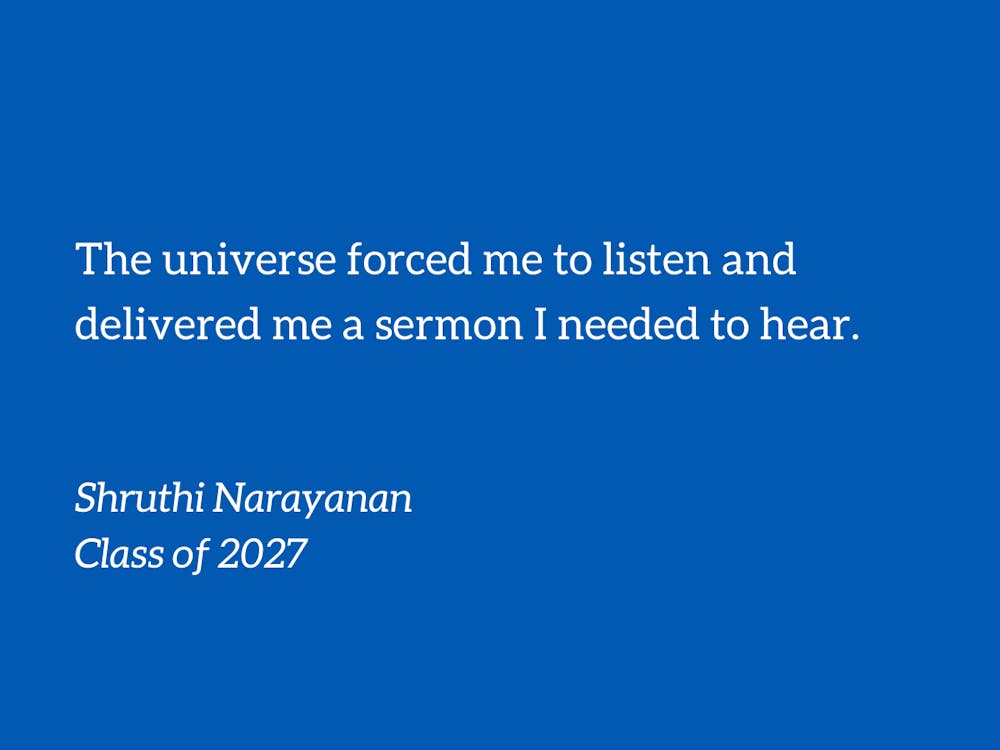The reason I decided to write this column stems from a personal struggle with listening. Growing up with a father who commanded attention through his speech created a powerful impression. He would enter a room, and soon, an orbit formed around him. He seamlessly intertwined humor, knowledge and opinions into an effortless monologue. All eyes on him. His charisma was magnetic, leaving everyone watching in awe as people hung on to his every word.
This shaped a young girl who craved similar attention. The desire to command rooms into fits of laughter and leave everyone in awe with wit and wisdom became overwhelming. The spotlight seemed like such a comforting place to exist. Somewhere on the journey from twelve-year-old girl to aspiring oratory spectacle came the belief that the only way to capture attention was to speak. The presence of my voice became a flag planted firmly in the soil of every conversation. This belief shaped my interactions with everyone I encountered.
How times change!
Neuroscience reveals that humans don't merely notice those who listen — their brains actually reward them for it. In a fascinating fMRI study by Kawamichi et al., researchers discovered that perceiving active listening activates the ventral striatum — the brain's reward center. Participants not only rated those who exhibited active listening more positively, but they also viewed their own personal experiences more favorably when discussed with attentive listeners. The brain literally processes being heard as a rewarding experience.
Ted Lasso once said "Be curious, not judgmental."
Most of us carry what might be called a tote bag of preoccupations and biases on our shoulders. This metaphorical load manifests in our listening habits — appearing in the AirPods left in ears while ordering Beyu coffee or, conversely, in phones placed on Do Not Disturb during intentional social interactions like FLUNCH.
Judgment represents the epitome of covering ears to let mouths talk. Making assumptions is easy, but remaining curious is freeing. When someone fails to hold open the heavy doors of the Brodhead Center, rather than labeling them as rude, students can simply push the door open and allow their actions to exist without explanation. Their reasons remain a mystery, and that's perfectly acceptable.
With simple prompts like "how," "why" or "tell me more," people transform before our eyes. They become brave knights and heroes in their own narratives while stronger connections blossom between us.
The Duke community brims with voices some might dismiss as background noise. Hidden within a professor's apparent tangent often lies a message worth hearing. We attend classes alongside some of the most fascinating individuals we'll ever encounter — making bridge-building not just a social activity but almost a moral obligation. Sometimes, precisely the right words find us at exactly the right moment, regardless of who delivers them.
A couple of months ago, I had a really bad stomach ache. It ended up being no big deal at all and more of a reflection of my low tolerance; regardless, I had gone to CVS to pick up some medication. I bought the medicine and ordered my Uber home. I was so annoyed; it was a crisp fall Saturday, and I had spent it in discomfort.
My Uber arrives to pick me up, and I get in. I normally am one to start the conversation, but my irritation got the best of me. I decided to put my AirPods in. A couple of minutes into my ride, they died. My annoyance with the day only grew.
Finally, the very sweet older woman driving my car broke the silence.
“This weather is beautiful,” she said.
“Yeah,” I replied.
As we turned onto Duke’s campus, the sun began to set. The sky was ornamented with swirls of pink and orange, and a golden haze settled upon our gothic architecture.
And with timing almost too perfect to be true, she turned to me and said, “How lucky are we that the switch from day to night is this beautiful?”
She was right.
My stomach hurt, but she was right.
I spent a Saturday annoyed in bed, but she was right.
The death of my AirPods let me re-enter my gratitude for the life I have and the world I get to live in. The universe forced me to listen and delivered me a sermon I needed to hear.
Get The Chronicle straight to your inbox
Sign up for our weekly newsletter. Cancel at any time.
The talkative nature I inherited from my father remains — the apple doesn't fall far from the tree, after all. But more of my sentences now end with question marks. Assumptions have given way to curiosity and selective hearing to attentiveness.
And occasionally, a "Ted Lasso" episode might just change how I approach my daily interactions.
Shruthi Narayanan is a Trinity sophomore. Her column typically runs on alternate Fridays.

